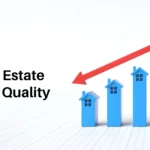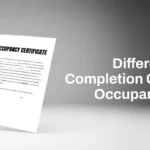
Introduction
What’s the secret to turning your sales team into top performers who close more deals, faster? Why do leading real estate agencies and sales managers swear by CRM?
In today’s fast-paced real estate market, a robust CRM system is the best investment for sales managers, business owners, and decision-makers. But why use a CRM for sales? Because the right CRM is a strategic engine powering sales growth, efficiency, and lasting client loyalty.
A good real estate CRM serves as a central hub for all your customer and lead data, filtering through the noise of scattered spreadsheets and automating repetitive tasks such as follow-ups, lead scoring, and scheduling. When these tasks are taken care of, your sales team can focus on building strong client relationships and closing deals.
Apart from lead tracking, CRM provides your team a 360-degree view of every client, streamlines multi-channel communication, and delivers powerful analytics for smarter, data-driven decisions.
In this blog, you will learn why a CRM is the foundation for your sales success and how implementing one can transform your real estate business.
Streamlined Processes and Increased Efficiency with Real Estate CRM Software
Real estate CRM software helps your sales team work smarter by centralizing client and property data, automating routine tasks, and improving communication. This leads to faster responses, fewer errors, and more time for your team to engage with clients and close deals.
Key features that drive efficiency include:
Centralized Data
Store all client information, communication history, and property details in one easy-to-access platform. This eliminates the need for multiple spreadsheets or scattered files, saving time and reducing confusion.
Automation of Repetitive Tasks
Automate follow-up emails, reminders, lead nurturing campaigns, and appointment scheduling. This consistent engagement ensures no leads get forgotten and frees your team from manual administrative work.
Efficient Property and Document Management
Track property availability, manage listings, and keep all documents such as contracts, approvals, and agreements organized and accessible. Automated document collection reduces paperwork delays and errors.
Better Collaboration
CRM platforms enable seamless communication within your sales team. Everyone stays updated on lead status, assigned tasks, and deadlines, preventing overlaps or missed opportunities.
Task and Pipeline Management
Built-in tools help agents organize their day, prioritize critical actions, and keep deals moving smoothly.
Simplifying daily operations through a real estate CRM tool for sales growth allows your team to focus on nurturing client relationships and closing deals efficiently.
Improved Insights and Data-Driven Decision Making
Once your processes are streamlined and data is centralized, the next step is harnessing that information to make smarter decisions that increase sales and revenue.
Here’s how real estate CRMs empower teams with actionable insights:
Lead Scoring and Prioritization
CRM software ranks the leads by engagement and conversion likelihood. It enables agents to focus efforts on the most promising prospects and increase closure rates.
Real-Time Tracking and Reporting
Dashboards provide instant visibility into lead progress, sales pipeline health, and agent performance. These insights uncover bottlenecks and allow sales leaders to forecast revenue more accurately.
Automated Follow-up Strategies
Using data-driven automation, CRMs send personalized email campaigns and reminders that keep leads warm and prevent drop-offs without manual oversight.
Integration with Sales and Marketing Tools
Seamlessly connect your CRM with email platforms, calendars, and marketing software to maintain a unified view of client interactions and campaign effectiveness.
Enhanced Customer Relationship Management
By tracking detailed client preferences and history, your team can tailor communication and service. They can also foster loyalty and encourage repeat business.
With the help of these insights, your sales team acts proactively on the right opportunities, optimizes their workflow based on data, and ultimately drives measurable growth. This is why understanding why to use CRM for sales goes beyond efficiency. It is about empowering your team with the knowledge to win more deals.
Enhanced Team Collaboration and Communication
A real estate CRM software is designed to improve team collaboration and communication by providing a centralized platform where client interactions, tasks, and workflows are managed efficiently. Sales managers and decision-makers can use a CRM tool for sales growth and stay aligned, informed, and focused on closing deals faster.
Here’s how a good CRM enhances collaboration and communication within your sales team:
Centralized Data and Information Access
By storing all client and prospect details in one place, a CRM lets every team member quickly access and share relevant data. This reduces information silos and ensures everyone works with the latest, most accurate client information.
Improved Communication
Features like integrated messaging, task assignments, and activity tracking help your team communicate smoothly and keep everyone updated in real time. This reduces missed messages and accelerates decision-making.
Enhanced Client Service
With a full, shared view of all client interactions, your team can deliver personalized, consistent, and timely service. This ensures no detail is overlooked, boosting client satisfaction and trust.
Streamlined Workflows
CRM software automates routine processes such as task reminders, follow-up scheduling, and handoffs between team members. Automating these workflows lets your team focus on strategic activities that drive sales success.
Increased Accountability
Task management tools and progress tracking make responsibilities clear and visible to all. This accountability helps keep deadlines on track and ensures no part of the sales process falls through the cracks.
By fostering transparent communication and efficient teamwork, real estate CRM software like HomeLead empowers your sales team to coordinate efforts seamlessly, accelerate lead conversions, and ultimately increase revenue.
Boosted Revenue and Profitability CRM for Real Estate
A good real estate CRM software boosts sales growth and profitability.
Here’s how CRM boosts your real estate business’s bottom line:
Streamlined Sales Processes and Automation
A CRM automates repetitive tasks like logging interactions, scheduling follow-ups, sending emails, and generating reports. This saves valuable time for sales reps to focus on building relationships and closing deals. Centralizing all customer data creates a single source of truth, helping your team avoid data silos and work faster. A visual sales pipeline clearly shows deal progress, highlights bottlenecks, and accelerates the sales cycle.
Enhanced Customer Relationships and Insights
CRMs give a 360-degree view of each client, including their history, preferences, and interactions. This enables the sales team to personalize their marketing and sales efforts. This builds stronger customer loyalty and increases satisfaction. CRM insights also identify top customers and upselling or cross-selling opportunities, maximizing revenue from existing clients.
Data-Driven Decision Making and Improved Sales Performance:
With powerful analytics and reporting, the CRM provides insights into sales results, customer behavior, and campaign effectiveness. Teams can make informed decisions, adjust strategies, and focus resources on the best leads. Real-time sales forecasting and conversion metrics help predict future revenue and fine-tune sales tactics for better outcomes.
Key CRM Features That Drive Growth
Contact and lead management, workflow automation, pipeline visualization, email integration, and customizable reporting together streamline your sales efforts and improve efficiency. CRM scalability and customization mean your system grows with your business needs.
Popular real estate CRM platforms reduce manual work, increase conversion rates, and boost profitability, making them the best investment for sustained sales success.
How Real Estate Agencies Use CRM for Sales Growth
Real estate agencies leverage CRM software as a vital tool to accelerate sales growth by streamlining their processes, enhancing client relationships, and boosting overall team efficiency. By centralizing client data, automating routine tasks, and delivering actionable insights, CRMs empower agents to focus on closing deals faster and providing outstanding service.
Here’s how real estate CRMs drive sales growth for agencies:
Enhanced Lead Management
Centralized Lead Database
CRMs consolidate leads from all sources, such as websites, social media, and referrals, into one platform. It ensures no potential client is overlooked.
Lead Tracking and Prioritization
Agents can easily track leads along the sales pipeline and prioritize those with the highest potential, focusing their efforts effectively.
Automated Lead Nurturing
CRMs send timely emails, schedule follow-ups, and share property details automatically, nurturing prospects and speeding up conversions.
Streamlined Sales Processes
Centralized Information
All client data, property details, communication records, and transaction files are stored in one place, giving agents a comprehensive view of each deal.
Automation of Repetitive Tasks
Scheduling appointments, sending reminders, and generating reports are automated, freeing agents’ time to engage with clients.
Improved Collaboration
CRM platforms foster seamless information sharing and teamwork, keeping everyone aligned and contributing to closing deals efficiently.
Strengthened Client Relationships
Personalized Communication
Agents tailor interactions based on client preferences and history, building stronger connections and trust.
Timely Follow-ups
Automatic reminders ensure agents follow up promptly, maintaining engagement and responsiveness.
Relationship Building with Past Clients
CRMs help nurture ongoing relationships through targeted marketing, encouraging repeat business and referrals.
Increased Efficiency and Productivity
Reduced Administrative Burden
Automation and centralized data management cut down on time-consuming paperwork and manual tasks.
Improved Team Performance
Managers use CRM insights to monitor agent activity and sales pipeline health, identifying areas for coaching and growth.
Data-Driven Decision Making
Real-time analytics on client behavior and market trends enable smarter sales and marketing strategies.
Enhanced Marketing Efforts
Targeted Marketing Campaigns
CRM segments clients to deliver personalized marketing campaigns, improving lead engagement and campaign effectiveness.
Tracking Marketing ROI
Agencies can monitor which marketing channels and campaigns generate the best leads, optimizing spending.
Lead Generation and Nurturing
By capturing and nurturing leads from multiple channels through automated communication, CRMs help convert more prospects into clients.
Lead Generation and Nurturing: By capturing and nurturing leads from multiple channels through automated communication, CRMs help convert more prospects into clients.
Key Features to Look for in a Real Estate CRM Software
A strong CRM tool for sales growth should offer essential features that streamline your sales processes, improve communication, and provide real-time insights for smarter decision-making.
Here are the key features to consider when selecting a CRM for your real estate business:
Contact Management
Efficiently organize and store detailed client information, including contact details, communication history, and property preferences. This centralization helps your team access the right data quickly, making client interactions more personalized and effective.
Lead Management
Capture leads from various sources like websites, social media, and referrals. Track their progress through your sales pipeline, prioritize follow-ups, and automate nurturing tasks such as emails and reminders to move leads closer to conversion.
Marketing Automation
Automate repetitive marketing tasks such as email campaigns and personalized property recommendations. This feature saves time, ensures consistent engagement, and helps convert more leads into clients.
Transaction Management
Streamline the buying and selling process with tools for document management, offer tracking, and closing coordination. This keeps deals organized and reduces administrative errors, accelerating deal closure.
Sales Pipeline Management
Visualize the entire sales process with a clear pipeline view. Track deal progress, identify bottlenecks, and prioritize high-impact activities to improve closing rates and forecast more accurately.
Integration Capabilities
Ensure the CRM seamlessly connects with essential tools like email, calendars, Multiple Listing Services (MLS), and social media platforms. Integration keeps data flowing smoothly and your team working efficiently across systems.
Reporting and Analytics
Gain insights into sales performance, lead generation effectiveness, and overall business health through customizable reports and dashboards. Real-time analytics empower your team to make informed, data-driven decisions.
Mobile Accessibility
Access client data, manage tasks, and communicate with prospects on the go via a mobile-friendly platform. This feature supports field agents and remote teams, keeping productivity high anytime, anywhere.
Scalability
Choose a CRM that grows with your business. Scalability ensures that as your team expands or your needs evolve, the software adapts without disruption.
Customer Support
Reliable customer support is vital for troubleshooting, training, and maximizing your CRM investment. Look for providers who offer responsive assistance and resources during onboarding and daily use.
Intuitive Interface
An easy-to-navigate CRM reduces training time and improves user adoption. A clean, user-friendly design lets your sales team focus on selling, not struggling with technology.
Customization
Your real estate business is unique, so your CRM should be customizable to match your workflows, fields, and reporting needs. Flexibility helps tailor the platform to your sales process and goals.
Lead Scoring
Prioritize leads based on engagement and conversion likelihood. Lead scoring directs your team to focus on the most promising prospects, boosting efficiency and sales results.
Task Management
Assign tasks, set reminders, and track progress to ensure every action item is addressed. Good task management keeps your team organized and prevents opportunities from falling through the cracks.
Platforms like HomeLead are designed to deliver these capabilities, helping real estate agencies streamline operations, improve client relationships, and drive sustained revenue growth.
Real-World Impact of CRM Investments
Investing in good real estate CRM software pays off far beyond initial costs. Research proves that the right CRM tool for sales growth delivers substantial financial and operational returns.
For every $1 invested, businesses see an average ROI of $8.71, driven by faster sales cycles, improved retention, and operational efficiency. CRM users report a 29% sales increase, a 34% rise in productivity, and better forecasting accuracy by 42%. Retention rates can improve by 27%, essential for long-term real estate success.
Real-World Example:
A leading real estate company in Ghana adopted HomeLead CRM and transformed its sales process. Centralizing client data and automating follow-ups allowed their team to track potential buyers precisely, ensuring no leads were lost. Consistent automated reminders boosted engagement and lead conversion, while distinguishing company-generated from self-generated leads provided clearer sales insights. This real-world success increased productivity and client relationship management, illustrating HomeLead as a powerful CRM tool for sales growth.
Maximize your ROI by focusing on CRM adoption, training, data quality, and seamless integrations to unlock its full potential.
Conclusion
Investing in the right real estate CRM software is the smartest move sales managers, business owners, and decision-makers can make to drive sales growth and operational efficiency. A good CRM acts as a CRM tool for sales growth by improving lead tracking and conversions, streamlining team communication, and automating time-consuming tasks. It empowers your sales team to focus on building lasting client relationships while making data-driven decisions that boost revenue and profitability. By providing real-time analytics and simplifying workflows, a CRM for real estate maximizes your sales potential and positions your business for sustained success.
If you are considering transforming your sales process and achieving measurable growth, HomeLead offers a comprehensive solution tailored to the unique needs of real estate teams. Find out why top agencies rely on HomeLead as their trusted CRM platform and take the first step to elevate your sales today.




